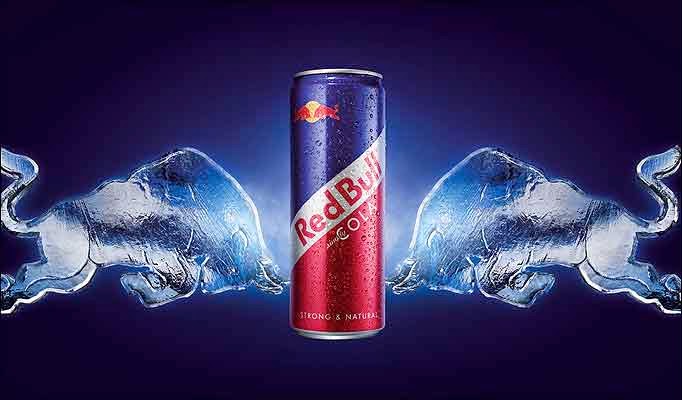What you should know about some of the industry's top brands, including Red Bull and 5-Hour Energy
All-nighters need fuel, and college students are increasingly turning to energy drinks to fill the tank. The antiquated coffee pot (h/t Keurig) might have helped mom and dad remain alert through a night of collegiate study but the kid today requires something more.
But do energy drinks actually offer something more, other than a concentrated dose of caffeine? And if so, is that something more worth the potential health risks reportedly tied to some of the booming industry’s top brands?
In addition to the FDA continuing to investigate energy drinks, there have been some recent actions that should give college students — and all consumers — pause before they grab a bottle off the shelf. Here are a few things to know about some of the biggest players in the energy drink business:
Red Bull: This summer, the world’s largest energy drink maker agreed to pay out $13 million in customer refunds to settle false advertising allegations in a class-action lawsuit filed earlier this year. The suit had claimed that Red Bull misleads customers into thinking they’re getting a superior source of energy beyond caffeine, and argued that the functional benefits of drinking the product are actually the same as an equal amount of other sources of caffeine, like coffee.
Red Bull denied any and all wrongdoing, saying the company stands by its marketing and labeling, and decided to settle “to avoid the cost and distraction of litigation.”
5-Hour Energy: While technically an “energy shot,” 5-Hour Energy faces similar scrutiny in regard to its marketing claims. Attorney generals in more than 30 states have been investigating, with the most recent action coming in July when Oregon, Vermont and Washington filed lawsuits against the company.
Similar to the Red Bull class-action complaint, Oregon’s lawsuit claims that 5-Hour Energy’s advertising misleads customers into believing they’re getting a unique blend of ingredients with the product when in reality it’s just a concentrated dose of caffeine that provides the energy boost.
The suit also questions 5-Hour Energy’s “no crash” labeling, which the company has changed over time.
In a company statement, 5-Hour Energy said it’s prepared to fight: “When companies are being bullied by someone in a position of power, these companies roll over, pay the ransom, and move on. We’re not doing that. The attorneys general are grasping at straws, and we will fight to defend ourselves against civil intimidation. The suits allege that the only ingredient in [5-Hour Energy] that has any effect is the caffeine. If so, are the attorneys general going to sue Starbucks for selling coffee?”
But it’s a matter of advertising, the attorneys general argue. The products aren’t marketed as strictly highly-caffeinated drinks. And a review posted this month by ConsumerLab.com found that 5-Hour Energy has additional issues with one of its ingredients. The lab found that the drink contains only about 72 percent of the amount of vitamin B-12 it claims on its label. The review notes that energy beverages tend to contain B vitamins known to help convert food to energy, but that the majority of people who drink the products aren’t deficient in B vitamins. Too much of these added vitamins, the report notes, can lead to an increased risk of toxicity.
Potential health risks
From 2004 to 2012, the FDA received more than 160 adverse event reports from energy drink consumers. More than 90 reports concerned 5-Hour Energy, which consumers complained had caused health issues, including such problems as abnormal heart rate, chest pain, dizziness, loss of consciousness, and even death, of which there were 10 reported cases. There were 40 similar complaints about Monster energy drink, including five reported deaths.
The FDA cautions that these drinks should not be viewed as an alternative to rest or sleep. “It is important for consumers to realize that, while stimulants such as caffeine may make one feel more alert and awake, judgment and reaction time can still be impaired by insufficient rest or sleep,” the agency said in a 2012 statement. “If you are thinking about taking one of these products, please consult your health care provider to ensure that you don’t have an underlying or undiagnosed medical condition that could worsen as a result of using them.”
Drinking and selling
In addition to the advertising issues and alleged health risks, some energy drinks have also been linked to questionable multi-level marketing companies that are known to target college-aged individuals, such as Vemma’s Verve and Wake Up Now’s Awaken.
Source: TruthInAdvertising.org
Source: TruthInAdvertising.org






0 comments:
Post a Comment